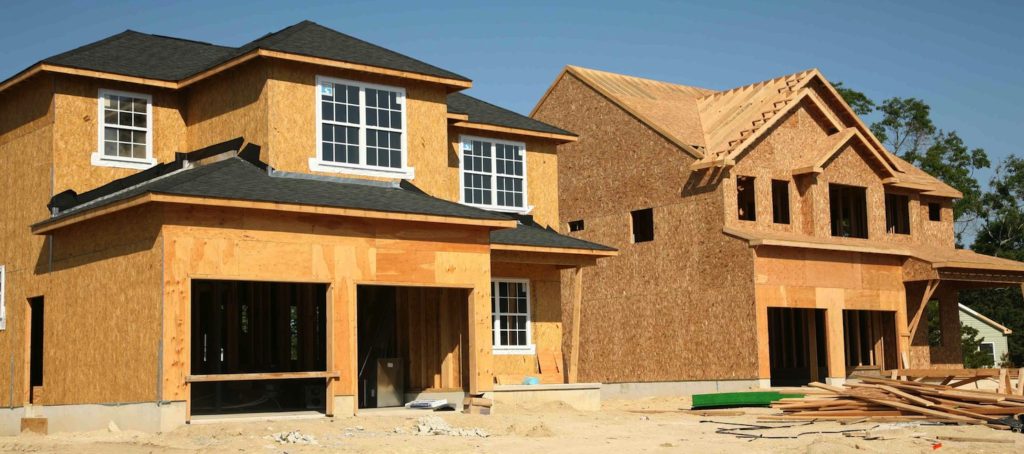Month: February 2020
Title Insurance & New Construction

Title insurance is a must-have if you’re buying a home that someone else has owned. But what if you’re paying for a brand new home to be constructed? Or one that has just been built? It may not seem necessary because no one is selling the house, because there is no house, or no one has lived in the house, so why would you need title insurance?
Although a brand new home has no previous owners, the unimproved land may have had prior owners. A title search reveals any existing liens on the land. Title insurance also protects against potential contractor liens from a builder who may have failed to pay his suppliers or subcontractors. To ensure a clear title, lenders require buyers to purchase a Loan Policy of Title Insurance. The Loan Policy only protects the lender’s interest. You can protect yourself from overlooked title threats by purchasing an Owner’s Policy of Title Insurance.
The Bottom Line: In the end, it is advisable to make sure that the title is clear. Anyone buying a new construction home should get title insurance. So much goes on with new construction which could affect the title: potential issues with new boundary lines, potential liens from subcontractors, outstanding construction loans, etc.
Preparing to Sell Your Home

- Prepare your home for maximum earnings. There are simple steps you can take to maximize your home’s appeal.
- Enlist the help of a Realtor to market and sell your home. When selling your home, a Realtor can provide expertise in valuing and advertising your home, qualifying and screening potential buyers, and negotiating contracts. If you are not able to enlist help from a Realtor, Title First can provide you with assistance.
- Negotiate a contract. When you receive an offer for the purchase of your home, it must be in writing, generally on a preprinted real estate purchase contract from your local bar association or board of Realtors. You may modify or alter the offer in any way you, your Realtor, or your attorney wish. Offers and counteroffers are made until the terms of the contract have been fully agreed to by all parties. When assessing offers and making counter-offers to the seller, don’t feel pressured to accept less than the value of your home.
- Close on the property. Before your home is officially sold, you must sign all appropriate documentation at your closing. The closing will typically be held at a Title First office, the office of your realtor, lender or attorney, or sometimes on-location. Because your home represents one of the most significant investments you will make throughout your life, it is important that you feel comfortable with all the information being presented to you during the closing procedure. Title First is dedicated to walking you through this important process with care and attention. When it’s time to set up your closing, don’t hesitate to tell your realtor or lender to call Title First, or feel free to give us a call if you’re working by yourself.
Be prepared for these seller’s fees commonly seen at the closing.
Fees:
Current loan payoff
Conveyance fee
Title insurance examination
Title insurance commitment/premium for the owner policy
Documentation to provide your Realtor® with:
Tax receipts
Utility bills
Mortgage Payment
Information to provide to Title First:
Your mortgage company name, address and account number
Any existing title insurance policy
Spring Ready to Buy a Home

Get Preapproved
Make an appointment to sit down with the best lender to get prequalified which will help determine how small or large of a loan you will get approved for. Getting prequalified is free and relatively painless, and can be used as just a starting point. A good lender will help you set clear financial goals, whether it be saving up for a down payment, paying down debts or improving your credit score so that you can ready yourself for homeownership sooner than later.
Prequalification means a lender determines your eligibility and an estimate for what you can afford. This is all based on your current financial budget and credit history. Your lender will also be able to determine if you qualify for any loan programs.
Preapproval is a more thorough process and will allow you to find out exactly how much a lender will give you. This information is determined by a few factors, including your income and debt-to-income ratio. Pre-approval will also take into consideration the money you will have for a down payment.
Find the Right Agent
To be honest the most important thing to do is to find the right agent to work with you. You want an agent who understands the process, knows the local market and is part of a firm with a reputation for results.
When looking for and interviewing potential agents, you also want to look for someone with strong interpersonal skills and who is able to meet your individual needs. When it comes to real estate, there is no one size fits all approach. Work with an agent who understands your individual needs and wants including your budget, the neighborhoods that you like, and knows when a home for sale is overpriced and what to offer.
Determine Location
When it comes to real estate, we always “say, “location, location, location.” Why? Because while you can change many aspects of a home, this is one you cannot. Figure out what is most important to you. Do you want a short commute to work? Are you looking to remain within a specific school district?
If you have a general idea of where you might like to live, do some neighborhood research. Drive through the neighborhood at different times of the day and during different days of the week; this will give you a good idea of what it might be like living there. Things like traffic, noise, and even lack of street lights may change your perception of a particular neighborhood.
Establish Your Needs and Wants List
Determining the number of bedrooms and bathrooms is an important factor, but it’s just the beginning. Do you need a fenced-in yard? Will the type of heat (gas, electric, oil) make or break a decision for you? Are there enough closets? If you know what is really important to you and you stick to that list, you’ll be much happier once you move in.
Stay in Your Price Range
Once you’ve been preapproved, you’ll have a good idea of how much home you can actually afford. Be realistic regarding your budget and stick to it. A good Realtor will make sure you aren’t overreaching. There’s nothing worse than falling in love with homes that you simply cannot afford. Besides the actual cost of the home, you also need to factor in a down payment, closing costs, and other potential fees. Your realtor and lender can give you better insight into the costs of purchasing.
The Bottom Line: The real estate market heats up in Spring. Sellers list and buyers start looking. Today’s real estate market is very competitive, however, and there are fewer listings than there are buyers. This means you have to be quick, qualified, ready to make an offer and competitive.

 See Our National Coverage Map
See Our National Coverage Map